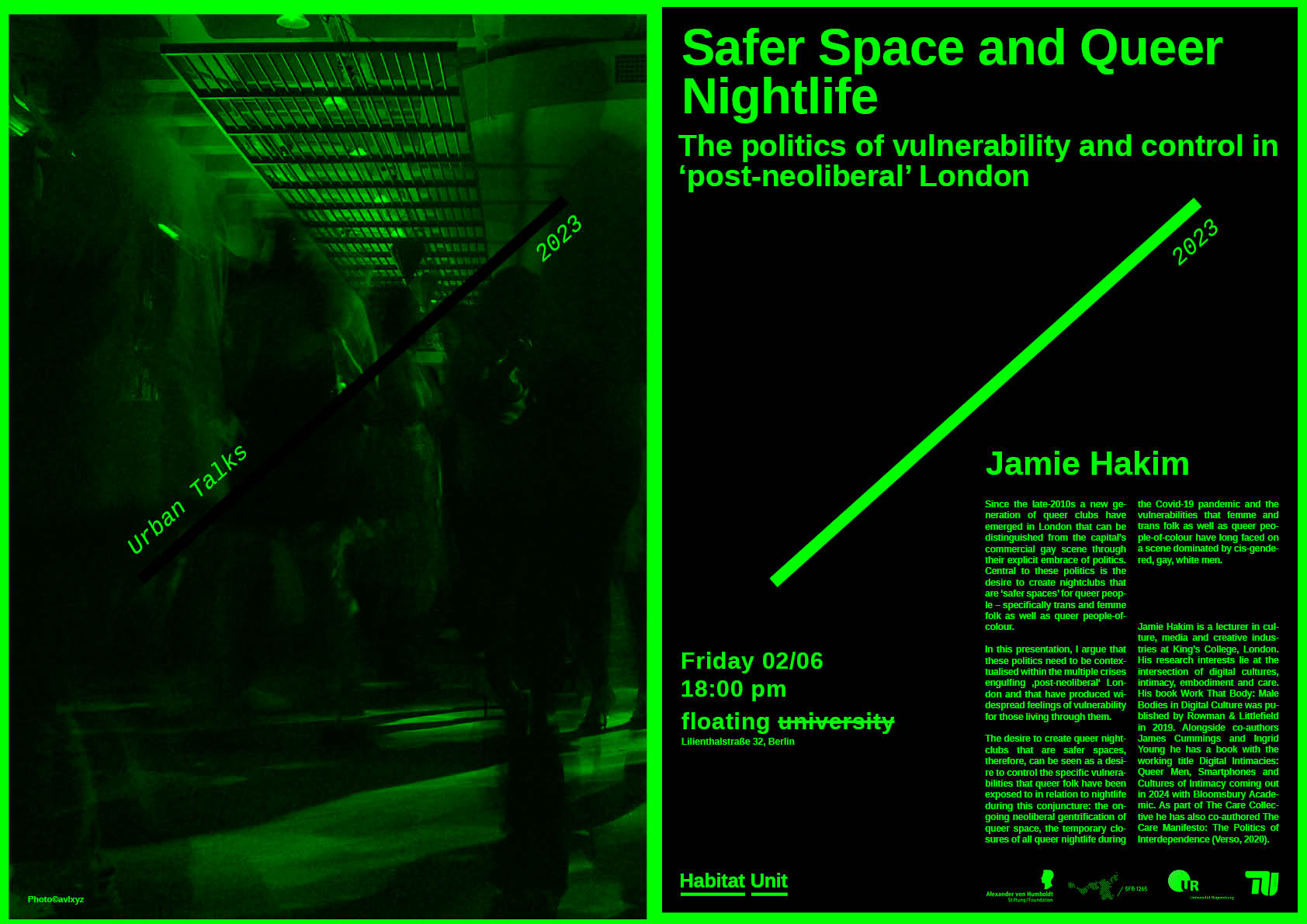URBAN TALK
Friday, 02.06.2023, 6.00 p.m. | floating university, Lilienthalstraße 32, Berlin
Jamie Hakim - Safer Space and Queer Nightlife: The politics of vulnerability and control in 'post-neoliberal' London
Since the late-2010s a new generation of queer clubs have emerged in London that can be distinguished from the capital’s commercial gay scene through their explicit embrace of politics. Central to these politics is the desire to create night clubs that are ‘safer spaces’ for queer people – specifically trans and femme folk as well as queer people of colour. Historically understood as spaces of transformation, transcendence and liberation, why have some queer clubs started to describe themselves as spaces of safety, comfort and protection over the past few years?
Using a broadly Gramscian approach, I argue that the emergence of safer space politics in the context of London’s queer nightlife can be understood as a symptom of the ‘post-neoliberal’ conjuncture, in which, since 2015/6, elements of neoliberalism stubbornly persist despite no longer being hegemonic (Davies and Gane, 2022). In London, as elsewhere in the Global North, this has produced an all-pervasive sense of unsettling crisis defined by feelings of vulnerability as well as the desire for control over these feelings.
The desire to create queer nightclubs as safer spaces can be seen as a desire to control the specific vulnerabilities that queer folk have been exposed in relation to nightlife during this conjuncture: the ongoing neoliberal gentrification of queer space, the temporary closures of all queer nightlife during the Covid-19 pandemic and the vulnerabilities that femme and trans folk as well as queer people of colour have long faced on a scene dominated by cis-gendered, gay, white men.
In this paper I explore the techniques and discourses used by these clubs to create safer spaces and then reflect on what it means not only for queer cultural politics, but the post-neoliberal conjuncture more broadly, that queer nightlife is being understood as primarily a space of safety as opposed to liberation, transformation and transcendence.

Jamie Hakim is a lecturer in culture, media and creative industries at King’s College, London. His research interests lie at the intersection of digital cultures, intimacy, embodiment and care. His book Work That Body: Male Bodies in Digital Culture was published by Rowman & Littlefield in 2019. Alongside co-authors James Cummings and Ingrid Young he has a book with the working title Digital Intimacies: Queer Men, Smartphones and Cultures of Intimacy coming out in 2024 with Bloomsbury Academic. As part of The Care Collective he has also co-authored The Care Manifesto: The Politics of Interdependence (Verso, 2020).
Download the Poster here.
Photo ©: avlxyz